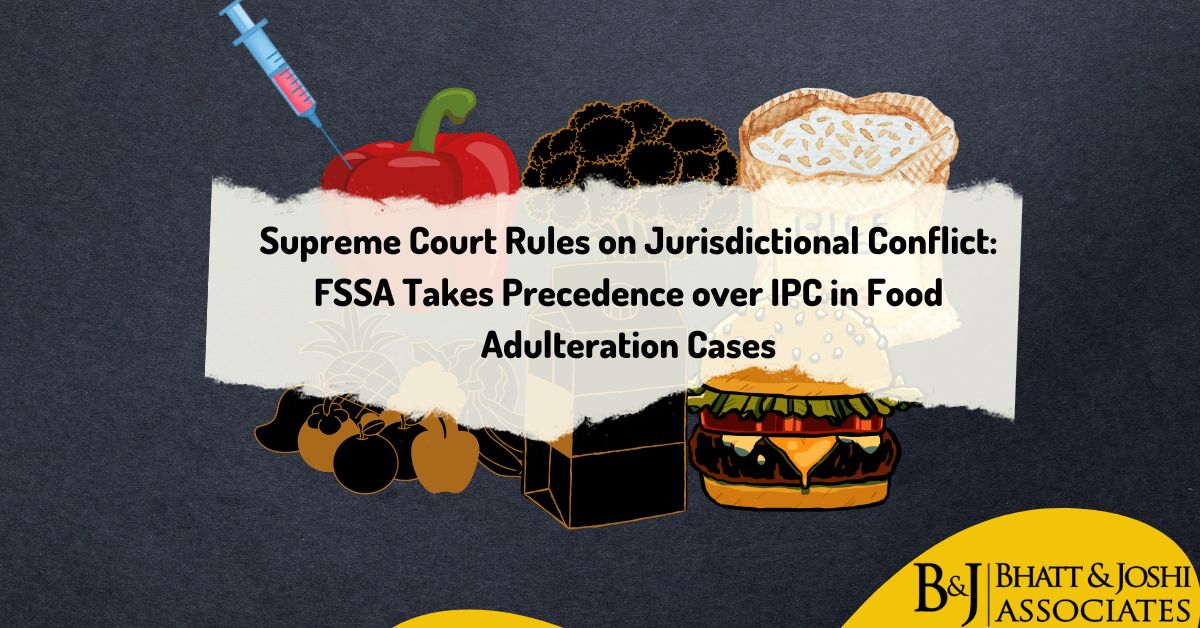Background of the Food Adulteration Case
The case pertains to the prosecution of an individual accused of food adulteration under Sections 272 and 273 of the IPC. The accused, challenging the proceedings, argued that the FSSA, being a special enactment, overrides other food-related laws, specifically the IPC, in matters covered by its provisions. In a significant ruling, the Supreme Court has clarified the jurisdictional conflict arising in cases of food adulteration, emphasizing that the Food Safety and Standards Act, 2006 (FSSA) takes precedence over the Indian Penal Code, 1860 (IPC). The judgment, delivered by Justices Abhay S. Oka and Sanjay Karol, highlights the overriding effect of Section 89 of FSSA, rendering simultaneous prosecution under IPC impermissible.
Supreme Court’s Observations
The Supreme Court, in its ruling, expressed strong disapproval of the Single Judge of the Madhya Pradesh High Court for canceling the bail granted by another Single Judge. The Court affirmed that Section 89 of FSSA grants an overriding effect to its provisions, preventing simultaneous prosecution under both FSSA and IPC.
“We have no manner of doubt that by virtue of Section 89 of the FSSA, Section 59 will override the provisions of Sections 272 and 273 of the IPC. Therefore, there will not be any question of simultaneous prosecution under both the statutes,” the judgment stated.
FSSA’s Overriding Effect in Food Adulteration Cases
The Supreme Court highlighted that the overriding effect of FSSA, as outlined in Section 89, extends to any other law for the time being in force. The Court clarified that the FSSA’s provisions take precedence over all “food-related laws,” not limited to specific statutes.
Stringency of Section 59 of FSSA in Addressing Food Adulteration
The Court underscored that Section 59 of FSSA is more stringent than Sections 272 and 273 of IPC. Notably, Section 59 does not require the presence of intention, making it more encompassing in addressing food safety concerns.
Conclusion and Quashing of Criminal Case
In light of these observations, the Supreme Court quashed the pending criminal case against the accused under IPC. However, it explicitly stated that authorities are free to take action against the accused under the FSSA for offenses punishable under Section 59 of the Act.
Significance of the Ruling
This ruling serves as a significant precedent, resolving the conflict between IPC and FSSA in cases related to food adulteration. The Supreme Court’s affirmation of FSSA’s overriding effect underscores the need for a specialized approach in matters concerning food safety and standards, ensuring that the specific provisions of FSSA prevail over general criminal statutes.
Case Details
Title: RAM NATH VERSUS THE STATE OF UTTAR PRADESH & ORS., CRIMINAL APPEAL NO. 472 of 2012














